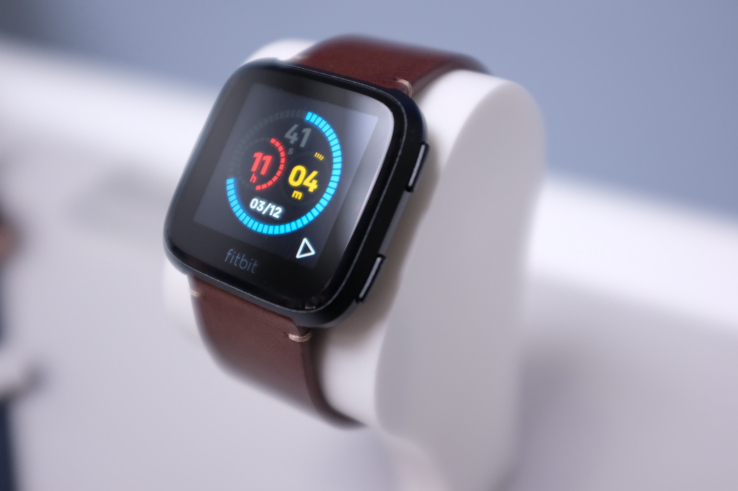
Fitbit’s first smartwatch had its fair share of issues, including a large size, which made it unwieldy for many wrists. That fact no doubt automatically excluded the product from a big chunk of its potential user base, including a lot of women. Fitbit’s hardly alone among wearable makers in that oversight, of course, but the issue certainly stood out for a company whose products are aimed at a mainstream appeal.
The Versa, thankfully, addresses the issue, with a considerably smaller footprint. The company’s new “smartwatch for all” also takes things a step further with the addition women’s health tracking, which adds menstrual cycle logging to the device’s healthcare tracking. The feature also offers cycle predictions, which improve over time, educational content and the ability to connect with other users through the Community feature.
There’s really nothing here users won’t get from your standard tracking apps, of course, but Fitbit’s hope is that incorporating it into the sleep and health data the company is already tracking could unlock some insight for women about how their menstrual cycle impacts their overall health.

As the company notes in the accompanying press material, “According to a recent Fitbit survey, 80-percent of women did not know how many phases are in a menstrual cycle and more than 70% were unable to correctly identify the average length of a cycle, demonstrating a lack of awareness about women’s health.”
For Fitbit, the feature has the dual appeal of embracing a huge demographic often overlooked by wearables and helping the company as it works to broaden its appeal to healthcare providers.
“The nuances of the menstrual cycle have not been as widely studied across populations as have other areas in healthcare,” Fitbit adviser Dr. Katharine White says in the accompanying press release. “This exciting development by Fitbit could help potentially create one of the largest databases of menstrual health metrics in the world, providing healthcare and research professionals with an unprecedented ability to study menstrual cycles and women’s health with real world data.”
The feature will be available on the Versa and will be coming to the Ionic through a software update “soon.”


